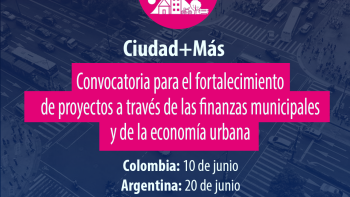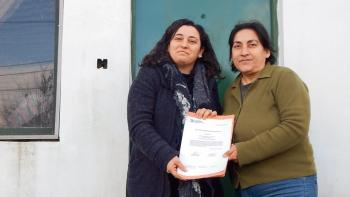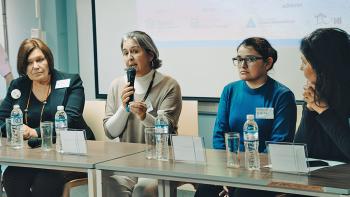HABITAT FACTS:
- Habitat began working in Argentina in 2002.
- Individuals served in FY2025: 9,833
- Through incremental building: 180
- Through repairs: 2,695
- Volunteers engaged in FY2025: 267
COUNTRY FACTS:
Capital city: Buenos Aires
Population: 46 million
Life expectancy: 76 years
Unemployment rate: 6.3%
Below poverty line: 39.2%
The housing need in Argentina
The level of poverty in Argentina is increasing at an alarming rate, based on data from the National Institute of Statistics and Census. It is estimated that 39.2% of the population lives in poverty, and more than 50% works in the informal sector.
More than three in 10 persons lack adequate housing. They often experience critical overcrowding, lack of access to drinking water and sanitation services, dirt roads, and no means of transportation or access to the main services.
Migratory movements, the limited scope of social housing programs, and the scarcity of mortgage loans are factors influencing the housing deficit, which is aggravated by the significant increase in land prices, high inflation, currency devaluation, and successive economic crises.
How Habitat addresses the need
Neighborhood projects
Amid the reality of self-construction of homes, we provide tools and training to improve housing quality and self-management and achieve lasting changes. Through financing and training, we impart specific knowledge, build capacity, and achieve greater scale and impact.
- The Progressive Improvement methodology allows families to build a safe home or incorporate significant renovations through financially accessible phases. At the same time, families are trained in home economics, home care, and self-construction.
- Through housing and water, sanitation, and hygiene programs, extremely vulnerable families can access training, tools, and socio-technical support to improve their homes with positive impacts on their health and well-being. Such improvements include repairs of sanitation facilities with a focus on menstrual health, elimination of risks from electrical shocks, replacing floors or roofs, and plastering.
- With funds from the National Program for the Urbanization of Popular Neighborhoods, we improved electrical installations in houses, built sidewalks, placed trash cans, and planted trees in the Saladero neighborhood of Bahía Blanca, where 275 families live. In addition, water connections were provided in 2022.
- Habitat Argentina is part of the nationwide Better Housing Network that aims to reach more families in housing vulnerability. Through the alliance, we partner with other organizations in making home repairs and improving the health of the families who attend the network’s programs.
- With support from Habitat’s Orphans and Vulnerable Groups Fund, we work with families with children with serious illnesses.
Rentals: Estela de Esperanzas Project
For 15 years we have been renting out nine apartments in the Estela de Esperanzas building to families with a history of living in tenements and boarding houses. Families are invited to join a Residence and Employment project where they are accompanied for one to three years to improve their employability and future housing solutions. This project continues to seek support in order to scale up and better respond to the issues experienced by hundreds of thousands of people who are left out of the formal rental market in the City of Buenos Aires.
What you can do
DONATE
Donate at www.hpha.org.ar
TITHE
Habitat affiliates in the U.S. support the international work through an annual tithe. For additional information, email [email protected] or contact your local Habitat organization.
CONTACT
Habitat for Humanity Argentina, Albarellos 1916 Oficina E12, Martínez, Buenos Aires, Argentina
CP 1640.
Email: [email protected] Phone: +54 9 11 6755-6421 Website: www.hpha.org.ar


